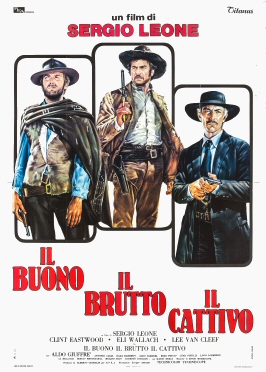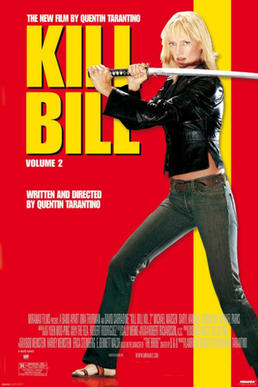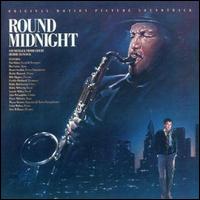
Ennio Morricone was an Italian composer, orchestrator, conductor, trumpeter, and pianist who wrote music in a wide range of styles. With more than 400 scores for cinema and television, as well as more than 100 classical works, Morricone is widely considered one of the most prolific and greatest film composers of all time. He received numerous accolades including two Academy Awards, three Grammy Awards, three Golden Globes, six BAFTAs, ten David di Donatello, eleven Nastro d'Argento, two European Film Awards, the Golden Lion Honorary Award, and the Polar Music Prize in 2010.

The Good, the Bad and the Ugly is a 1966 Italian epic spaghetti Western film directed by Sergio Leone and starring Clint Eastwood as "the Good", Lee Van Cleef as "the Bad", and Eli Wallach as "the Ugly". Its screenplay was written by Age & Scarpelli, Luciano Vincenzoni, and Leone, based on a story by Vincenzoni and Leone. Director of photography Tonino Delli Colli was responsible for the film's sweeping widescreen cinematography, and Ennio Morricone composed the film's score. It was an Italian-led production with co-producers in Spain, West Germany, and the United States. Most of the filming took place in Spain.

A Fistful of Dollars is a 1964 spaghetti Western film directed by Sergio Leone and starring Clint Eastwood in his first leading role, alongside Gian Maria Volonté, Marianne Koch, Wolfgang Lukschy, Sieghardt Rupp, José Calvo, Antonio Prieto and Joseph Egger. The film, an international co-production between Italy, West Germany and Spain, was filmed on a low budget, and Eastwood was paid $15,000 for his role.

Kill Bill: Volume 2 is a 2004 American martial arts film written and directed by Quentin Tarantino. It stars Uma Thurman as the Bride, who continues her campaign of revenge against the Deadly Viper Assassination Squad and their leader Bill, who tried to kill her and her unborn child.

Hugo Mario Montenegro was an American orchestra leader and composer of film soundtracks. His best-known work is interpretations of the music from Spaghetti Westerns, especially his cover version of Ennio Morricone's main theme from the 1966 film The Good, the Bad and the Ugly. He composed the score for the 1969 Western Charro!, which starred Elvis Presley. He also wrote for various television series, most notably the theme to "I Dream of Jeannie"

Beatrix "the Bride" Kiddo is the protagonist of the martial arts films Kill Bill: Volume 1 (2003) and Kill Bill: Volume 2 (2004), directed by Quentin Tarantino. She is portrayed by Uma Thurman. In 2010, Entertainment Weekly named the Bride the 99th-greatest character of the preceding 20 years, and in 2015 Empire named her the 23rd-greatest film character of all time.

The Mission is the soundtrack from the film of the same name, composed, orchestrated, conducted and produced by Ennio Morricone. The work combines liturgical chorales, native drumming, and Spanish-influenced guitars, often in the same track, in an attempt to capture the varying cultures depicted in the film. The main theme, "Falls", remains one of Morricone's most memorable pieces, and has been used in numerous commercials since its original release. The Italian song "Nella Fantasia" is based on the theme "Gabriel's Oboe" and has been recorded by multiple artists including, Sarah Brightman, Amici Forever, Il Divo, Russell Watson, Hayley Westenra, Jackie Evancho, Katherine Jenkins, Amira Willighagen and Yasuto Tanaka.

Philip (Phil) Brigham is a Canadian rock singer, composer and guitarist.
"The Ecstasy of Gold" is a musical composition by Ennio Morricone, part of his score for the 1966 Sergio Leone film The Good, the Bad and the Ugly. It is played while Tuco is frantically searching a cemetery for the grave that holds $200,000 in gold coins. Sung by Edda Dell'Orso, it stands as one of the best known of Morricone's themes and one of the most iconic pieces of cinematic score in history.

Death Proof is the soundtrack to Death Proof, Quentin Tarantino's segment of the 2007 film Grindhouse. It also includes clips of dialogue from various scenes in the film.

Round Midnight is a soundtrack album by Herbie Hancock featuring music recorded for Bertrand Tavernier's film Round Midnight released in 1986 on Columbia Records. The album features performances by Hancock, trumpeter Freddie Hubbard, bassist Ron Carter, drummer Tony Williams, vocalist Bobby McFerrin, tenor saxophonist Dexter Gordon, bassist Pierre Michelot, drummer Billy Higgins, guitarist John McLaughlin, trumpeter/vocalist Chet Baker, vibraphonist Bobby Hutcherson, saxophonist Wayne Shorter, vocalist Lonette McKee, and pianist Cedar Walton, most of whom appear in the film. It won the Academy Award for Best Music, Original Score in 1986, beating Ennio Morricone's The Mission and Jerry Goldsmith's Hoosiers, among others. Additional music recorded during the making of the film was released under Dexter Gordon's name as The Other Side of Round Midnight (1986).
"The Good, the Bad and the Ugly" is the theme to the 1966 film of the same name, which was directed by Sergio Leone. Included on the film soundtrack as "The Good, the Bad and the Ugly ", the instrumental piece was composed by Ennio Morricone, with Bruno Nicolai conducting the orchestra. A cover version by Hugo Montenegro in 1967 was a pop hit in both the US and the UK. It has since become one of the most iconic scores in film history.

Quentin Tarantino's Inglourious Basterds: Motion Picture Soundtrack is the soundtrack to Quentin Tarantino's motion picture Inglourious Basterds. It was originally released on August 18, 2009. The soundtrack uses a variety of music genres, including Spaghetti Western soundtrack excerpts, R&B and a David Bowie song from the 1982 remake of Cat People. "The Man with the Big Sombrero", a song from the 1943 screwball comedy Hi Diddle Diddle, was rerecorded in French for the movie. This is the first soundtrack for a Quentin Tarantino film not to feature dialogue excerpts. The album was nominated for a Grammy Award for Best Compilation Soundtrack Album for a Motion Picture, Television or Other Visual Media, but lost to the Slumdog Millionaire soundtrack.
Bixio Music Group, a New York corporation, is the American branch of Gruppo Editoriale Bixio it:Gruppo Editoriale Bixio, or Bixio Publishing Group, the first Italian music publishing company. The Bixio Publishing Group, currently based in Rome, Italy, was established in Naples during the 1920s by composer Cesare Andrea Bixio. Bixio Music Group, an ASCAP member since 1992, was established to facilitate licensing of the Bixio Publishing Group catalogue that includes not only musical compositions but also sound recordings by related labels under the Group in the territories of North and South America.

Django Unchained is the soundtrack to Quentin Tarantino's motion picture Django Unchained. It was originally released on December 18, 2012. The soundtrack uses a variety of music genres, though with an especially heavy influence from Spaghetti Western soundtracks.

The Hateful Eight is a 2015 American Western film written and directed by Quentin Tarantino. It stars Samuel L. Jackson, Kurt Russell, Jennifer Jason Leigh, Walton Goggins, Demián Bichir, Tim Roth, Michael Madsen, and Bruce Dern as eight dubious strangers who seek refuge from a blizzard in a stagecoach stopover some time after the American Civil War.

Kill Bill Vol. 1 Original Soundtrack is the soundtrack to the first volume of the two-part Quentin Tarantino film Kill Bill. Released on September 23, 2003, it reached #45 on the Billboard 200 album chart and #1 on the soundtracks chart. It was organized, and mostly produced and orchestrated by RZA from the Wu-Tang Clan.

The Hateful Eight (Original Motion Picture Soundtrack) (stylized as Quentin Tarantino's The H8ful Eight) is the soundtrack album to Quentin Tarantino's 2015 motion picture The Hateful Eight. The soundtrack includes the only complete original score for a Tarantino film and is composed, orchestrated and conducted by Ennio Morricone. Morricone composed 50 minutes of original music for The Hateful Eight.

"Ancora qui" is a song recorded by Italian singer Elisa. The song was released on 4 January 2013 as the second single form the soundtrack album of the Quentin Tarantino's 2012 film Django Unchained. The song was written by Elisa herself and composed by Ennio Morricone. It was shortlisted at the 85th Academy Awards for Best Original Song. Another version of the song was later included in Elisa's studio album L'anima vola.















